METRO Postponing University Corridor Line; Gulfton Corridor Still on the Table
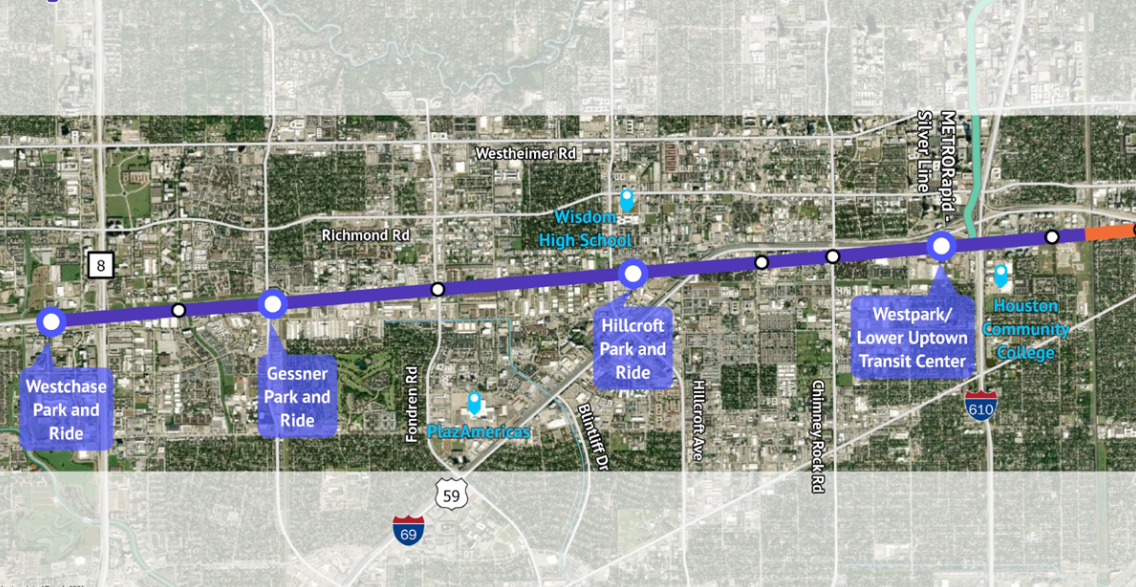
METRO had grand plans for a network of BRT (bus rapid transit) lines sprawling across Houston. These controversial lines would provide long-distance, single-seat bus rides along major east-west and north-south corridors, but take away some regular traffic lanes to build dedicated bus lanes. Two—the University Corridor and Gulfton Corridor lines—would have run through the Sharpstown area. The first is postponed indefinitely, but the second is still a live option.
METRO had planned to apply for federal funding for the University Corridor this month, but at the Strategic Planning Committee meeting on Tuesday, 6/18, top staff recommended postponing the project. Board members informally approved—although a formal vote was not required, said Shri Reddy, Executive VP of Planning, Engineering, & Construction. According to the Houston Landing, the line will simply "fall out of the project development phase" when Metro misses the June 27 federal grant application deadline—no board action necessary.
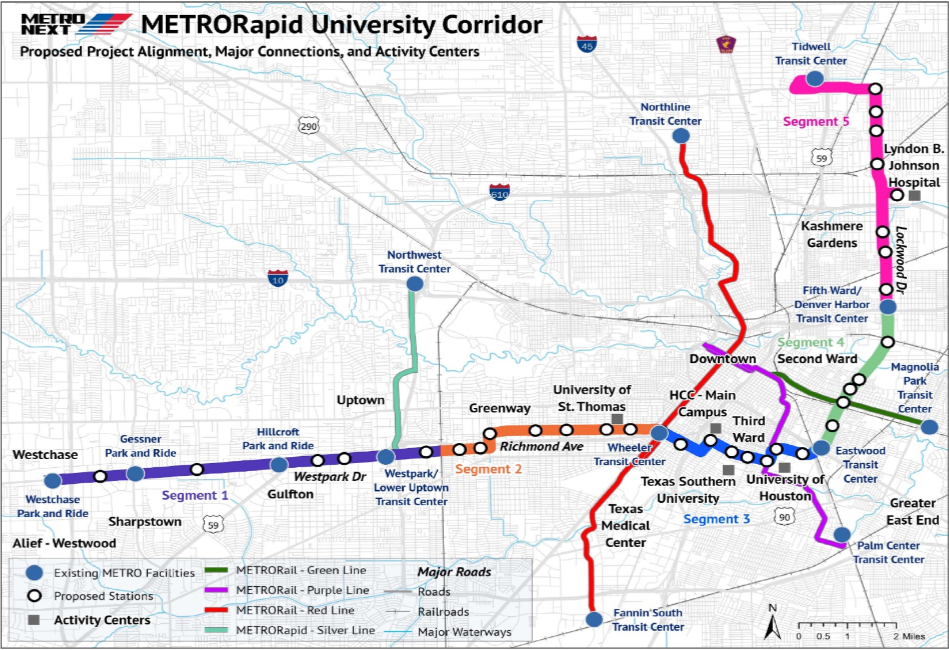
Why the change? At the committee meeting, CFO George Fotinos said that ridership dropped during COVID-19 and hasn't recovered, which means fewer fare dollars filling METRO's coffers. Yet high inflation means that construction and operating expenses cost METRO increasingly more. All told, he said, METRO's projected revenues over the next fifteen years would decrease by $500 million, while projected expenses would increase by $850 million, leaving a total shortfall of $1.35 billion. He forecast that if METRO built all three planned BRT projects (~$3.28 billion total), the organization would take on nearly $3 billion in new debt and wouldn't pay it off until 2059.
Data analytics manager Julie Fernandez emphasized that METRO also needs to improve services in other ways: building more bus shelters, expanding the organization's police department to improve rider safety, increasing bus service reliability, adding BOOST corridors, and more.
Fotinos, Fernandez, and Reddy recommended allocating METRO's limited funds to those improvements rather than the ~$2.28 billion University Corridor project. But METRO isn't necessarily shuttering the project forever. Reddy said that they could still apply for federal funding in the future. Chairwoman Elizabeth Gonzalez Brock said, "It's really refreshing to hear that...if we're ready at a later date, if our scenario changes, we will be able to apply."
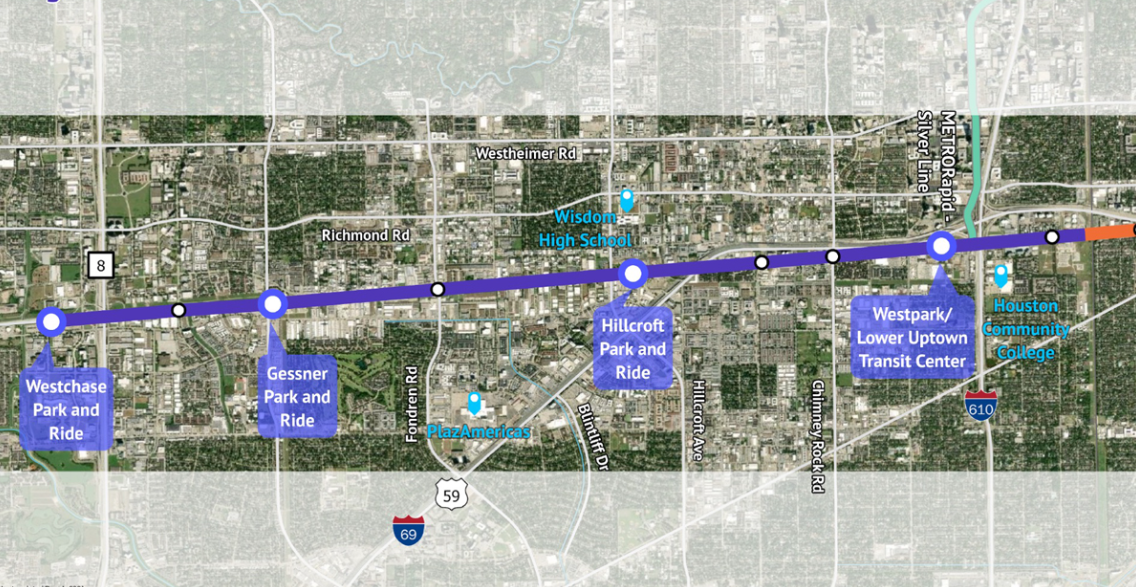
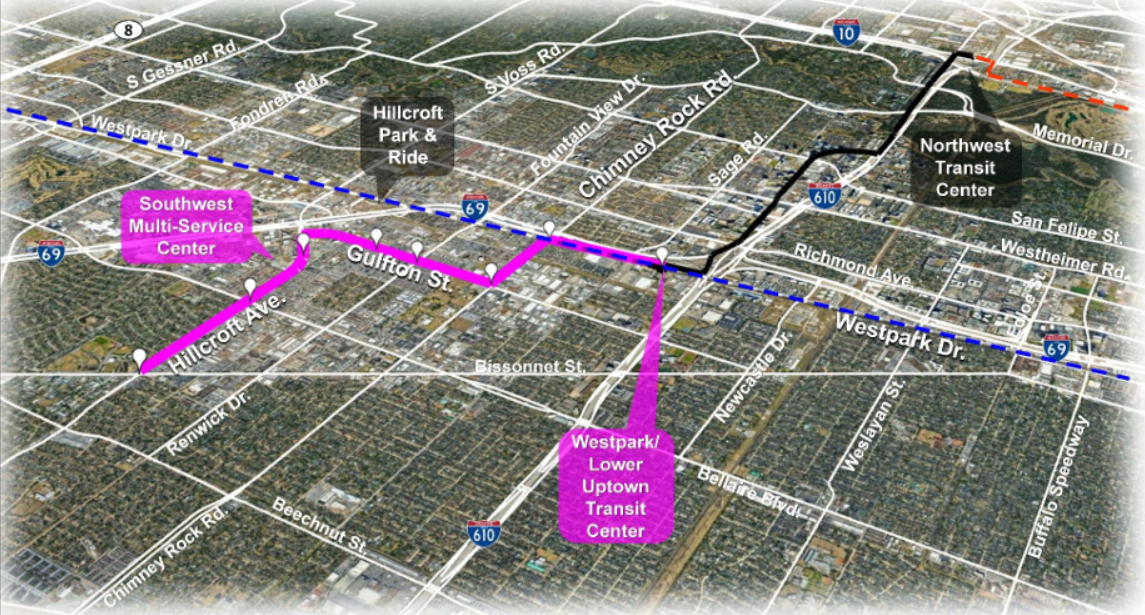
Left: the proposed first segment of the University Corridor line (drawing from 2021). Right: the route approved by METRO for the Gulfton Corridor Project. Image Credits: METRO
The much cheaper Gulfton Corridor project (estimated at $220 million) is still on the table for now. Reddy spoke favorably about it, arguing that Gulfton is highly transit-dependent and that the BRT line would coincide with an ongoing community revitalization project. But he did not make an official recommendation.
Even if METRO doesn't postpone the Gulfton Corridor line, it would likely not be completed until 2028 at the earliest, said Reddy. The current project timeline requires getting "environmental clearance" this year and applying for a federal Small Starts grant next year.
The route that METRO's board approved last August would likely take away some regular traffic lanes on Chimney Rock, Hillcroft, and Gulfton St to use as dedicated bus lanes. On the other hand, it would likely make it easier for transit-dependent people in Gulfton and east Sharpstown to travel to Bayland Park, the Southwest Multi-Service Center, the Galleria, and northwest Houston.
If eventually built, the University Corridor would link the Gulfton Corridor to Westchase—and all the way to northeast Houston. Gabe Cazares, executive director of transportation advocacy nonprofit LINK Houston, called postponing the UC's grant application "unacceptable" and recommended building a proof of concept segment in the Sharpstown area, "between Westchase and Wheeler Transit Center."
BRT has always had proponents and detractors in Houston. To whom will METRO's board listen?
One thing is for sure: they're listening to METRO's strained financial heartbeat.
Update: an earlier version of this article said that there may be an official board vote on June 27. The article has been updated to reflect that no official board vote is required to postpone the University Corridor Project.
What do you think? Should METRO keep or nix the Gulfton Corridor and University Corridor projects? Comment below or send me an email at sharpstownsharpener@gmail.com.
~Tyess Korsmo, editor-in-chief
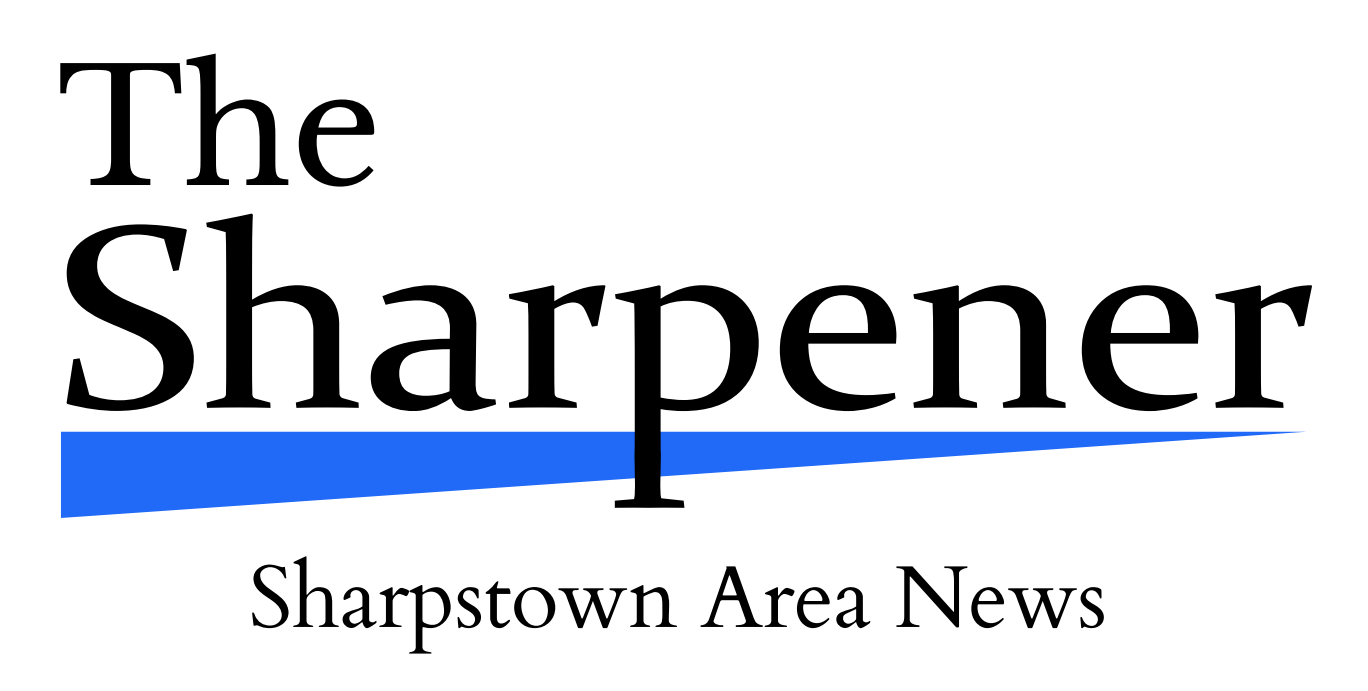

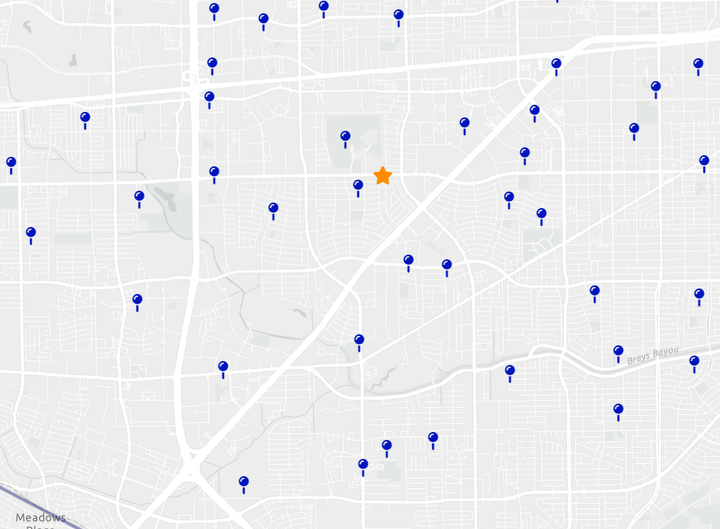
Comments ()